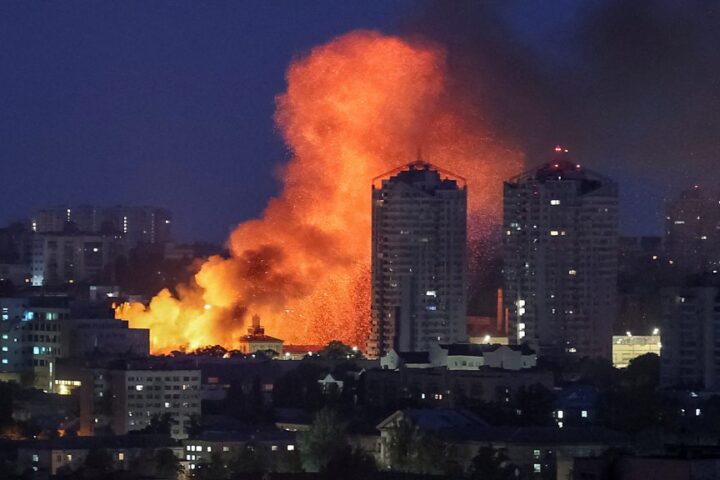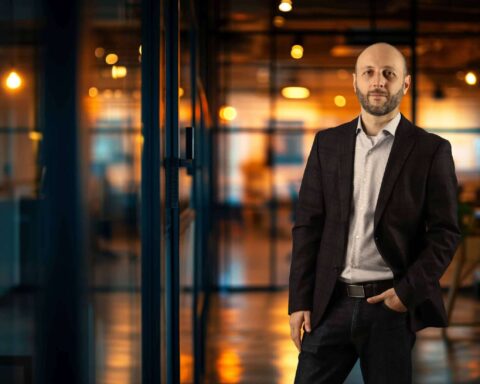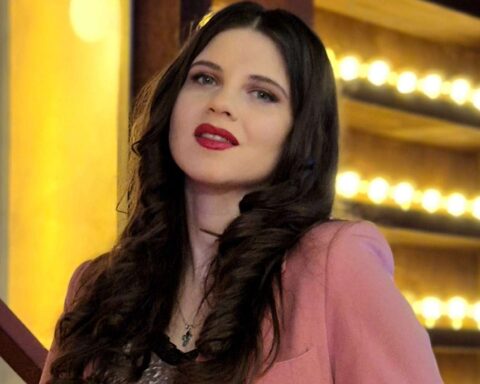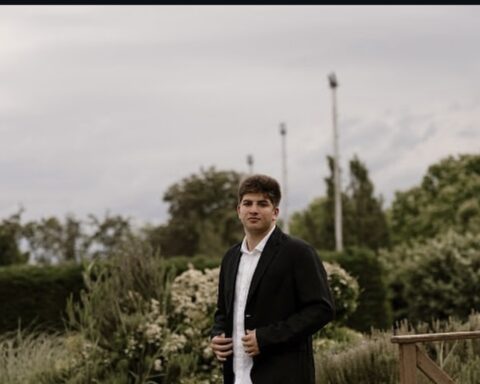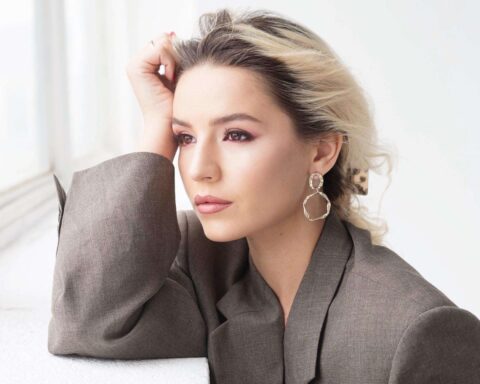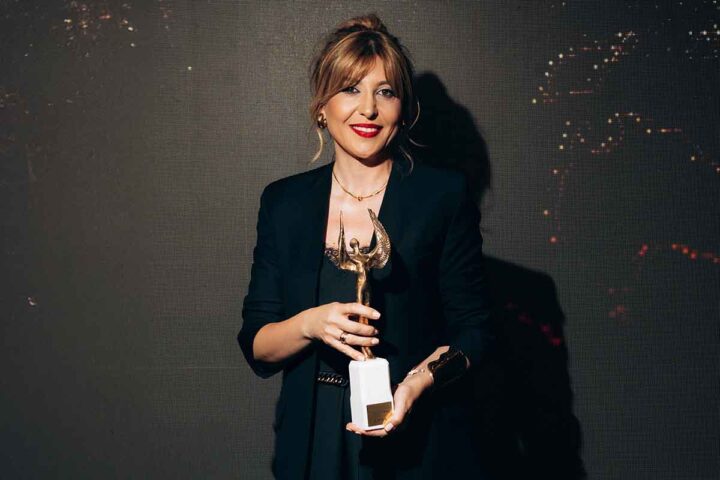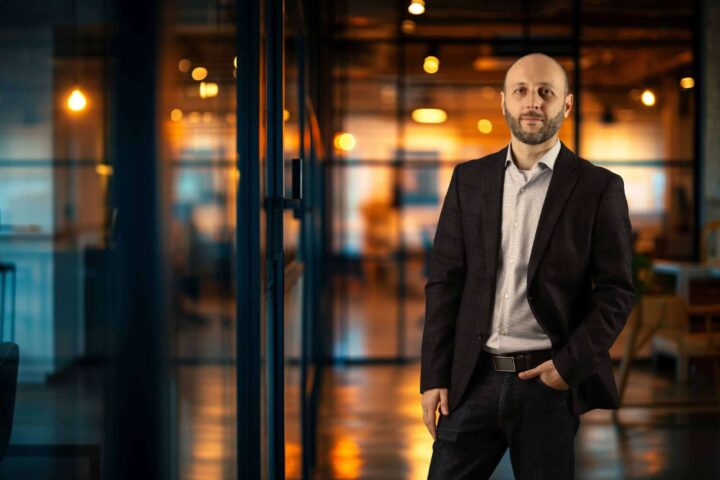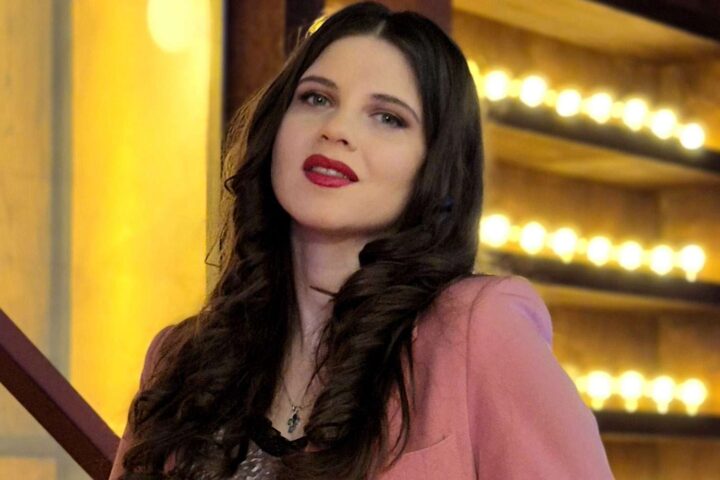ALMATY – Growing up in Esil, a predominantly Russian-speaking town in northern Kazakhstan, Aleksei Skalozubov didn’t feel the need to speak Kazakh, the country’s state language.
The situation didn’t change much after he moved to Almaty for work after graduating from university with an agriculture degree. Everyone communicated in Russian where Skalozubov lived — his family, friends, classmates, colleagues, and clients.
But Skalozubov, 25, says it didn’t feel right that he couldn’t speak Kazakh, the native language of the country that three generations of his family have called home.
The issues of identity, language, and patriotism come — or have returned — to the forefront in Kazakhstan, especially among its sizable ethnic Russian populations after Russia invaded Ukraine on February 24.
The war has also unleashed an unprecedented interest among Russian-speakers in Kazakhstan to learn Kazakh, Skalozubov says. He adds that he has used the opportunity to realize his dream of opening a free Kazakh-language school, a plan he first announced on social media in March.

Offers of support poured in, with several teachers and others volunteering to teach Kazakh for free. Young entrepreneurs, culture centers, and other organizations offered their spaces to be used as classrooms rent-free. Others helped with the costs of printing teaching materials and brochures.
Skalozubov says he initially thought a maximum of about 40 people would join his language classes, which began on April 15. He was surprised when some 300 people expressed interest. Soon the project — now called Batyl Bol! (Be Courageous!) — spread to other cities across Kazakhstan.
Unorthodox Methods
Skalozulov prefers to call his meeting places a Kazakh-language club instead of describing them as schools or classes. He wants the clubs to be a place where people learn Kazakh in an informal setting and focus on the words and phrases they use in their everyday lives.
With no experience teaching, Skalozubov has used his own life experiences with the Kazakh language as a tutoring method in the club. Kazakh was part of the teaching curriculum at his school and university, and he also briefly enrolled in a private language class. Despite “learning a relatively strong vocabulary,” Skalozubov says he didn’t speak Kazakh.
The schools were more about grammar than actual practice speaking, Skalozubov recalls.
Skalozubov says he started speaking Kazakh when he moved to a mainly Kazakh-speaking neighborhood near Almaty’s Central Mosque in 2019.
“Most of the people around were religious ethnic Kazakhs, and most of the workers in a cafe that I frequented were fluent both in Kazakh and Russian,” he recalls. “I tried to speak Kazakh with waiters…. I already knew the Kazakh grammar in theory very well, but I lacked real-life practice.”
His language clubs offer plenty of practice to their members.
“The format of the club is arranged so that people start talking straight away. We use dialogues that are vital in our daily lives, such as shopping in a grocery store or buying food in a cafe,” Skalozubov explains.
Most of Skalozubov’s students are ethnic Russians who have lived in Kazakhstan most of their lives, as well as ethnic Kazakhs who went to Russian schools and don’t speak their own language well.
Russian remains an official language in the former Soviet country, where even many ethnic Kazakhs — including government officials — speak Russian more fluently than Kazakh, although that situation has recently been changing.
Anastassiya Rochshupkina, a 22-year-old journalist from Almaty who joined the Kazakh-language club in April, says she wasn’t able to speak Kazakh, despite learning it in school.
“Previously, I studied grammar. Here, we are learning how to say or ask for something in Kazakh in shops or restaurants,” she says. “After classes, we often go out to eat together, and we order food in Kazakh. Now, I communicate in Kazakh on public transport, too. It has now become much easier for me to speak Kazakh.”
Changing Attitudes
The clubs became instantly and unexpectedly popular as thousands of Russian-speakers in Kazakhstan decided to learn Kazakh, a trend Skalozubov and some club members link to the political atmosphere created by the Kremlin’s war in Ukraine.
Batyl Bol! clubs now operate in Oral, Pavlodar, Semey, Shymkent, Talghar, Taraz, Qaraghandy, and the capital, Astana.
Skalozubov has become more active on social media since the war in Ukraine began, criticizing the Russian invasion and saying that he calls Kazakhstan his home country and would fight for it if needed.

Skalozubov got many positive reactions and connected with many “like-minded” people — including many ethnic Russians in Kazakhstan — through social media.
Rochshupkina says “the war in Ukraine significantly changed [her] attitude toward learning Kazakh.”
“You began to think about how the Russian colonization affected local languages in the Soviet states,” she told RFE/RL. “Before, we probably regarded Kazakh as a somewhat secondary language that you didn’t have to learn. Now, I realize that Kazakh is important, that it is part of my life in Kazakhstan, and that if don’t learn Kazakh I would be like a stranger here.”
Among the newest members of the Kazakh-language club are some Russian citizens who either fled their country to avoid being sent to fight in Ukraine or due to other complications the war put on their lives.
Orkhan Mamedov, 30, joined the language club in Almaty in July, shortly after moving there from Russia. An ethnic Azerbaijani, Mamedov finds learning Kazakh relatively easy, as both of the languages are in the Turkic group.
A computer engineer, Mamedov works remotely and doesn’t necessarily need Kazakh for his work. His job only requires knowledge of English and Russian.
“In Almaty, you can still survive without Kazakh if you speak Russian, but for me learning Kazakh is a way to get adapted and accepted in this society. It’s important for me to be able to speak with the locals in their own language,” he said.
The Kazakh-language club doesn’t offer complex grammar lessons.
Skalozubov says his program focuses on everyday conversations and doesn’t try to prepare its customers for school exams or work in Kazakh.
The club is open for everyone aged at least 14 years and doesn’t require registration.




